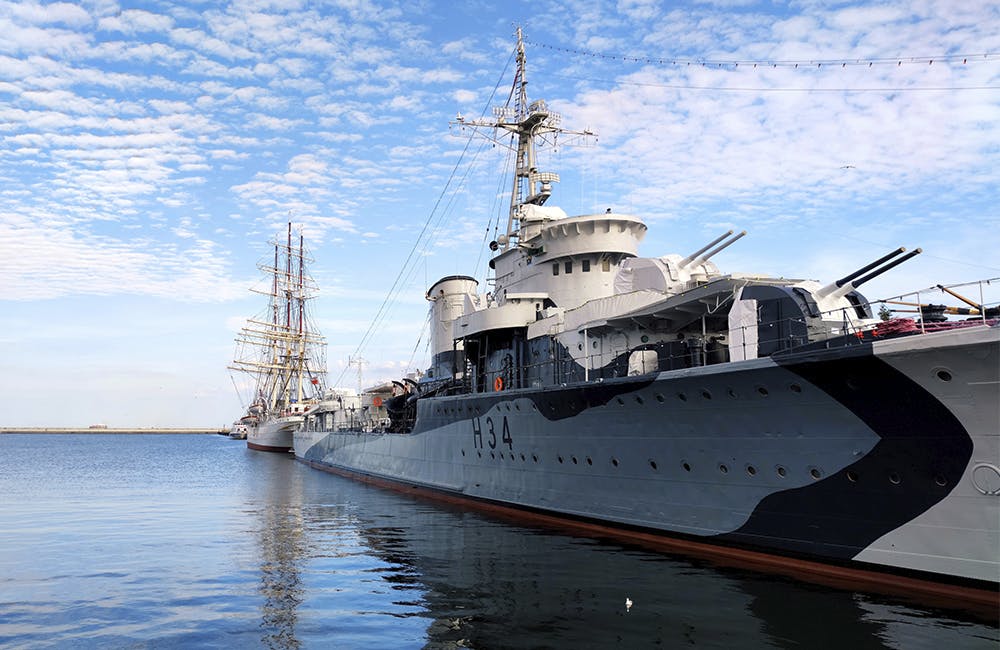Navy Academics: AI the ‘Next Frontier’ for R&D
Navy academics see a need for the service to exercise caution when it comes to deploying AI systems for warfighter support.

SAN DIEGO – Defense Department leaders keyed in on artificial intelligence throughout much of the discussions at AFCEA West this week about the ways it could help better equip U.S. military personnel. For some, the hype around artificial intelligence must make way for clearer eyes and a better understanding of what the tech is and how it can better be used to aid the Navy.
Retired Marine Col. Randy Pugh, director of the Naval Warfare Studies Institute at the Naval Postgraduate School, said the Navy must find a way to invest in its workforce and come up with “creative applications for AI for warfighting purposes.”
“Like all inventions in the past, whether that was radio, radar, nuclear power or space-based capabilities, the technology itself is interesting, but it’s not a capability within itself. That requires a lot of other things in order to get it utility as a military capability,” Pugh said at the event. He emphasized that “sailors matter most” when it comes to implementing technology, and that the push for tech cannot get in the way of effectiveness on the battlefield.
Katie Rainey, director of the Science and Technology, Intelligence, Surveillance & Reconnaissance Department at the Naval Information Warfare Center Pacific, said developing methods to trust and evaluate algorithms is still a top priority when it comes to developing, but that AI and machine learning operations are also a controversial issue.
“ML ops, it’s really the logistics of getting data and models from one place to another,” Rainey said. She equated it to normal logistics with trucks, but specified that unlike normal logistics, the Navy “might not have paved roads, they might not be able to safely drive from one place to another. We might not have the internet to get data from one place to another, we might not have GPS to know where we are from one time to another, and we might not have platforms that have the amount of compute that we’re used to. Solving the logistical challenges for AI is really, I think, the next frontier for our research and development.”
Retired Navy Capt. Sam Tangredi, professor and Leidos Chair of Future Warfare Studies at the U.S. Naval War College, said that artificial intelligence might be useful in collecting large amounts of data, but the quality of that data must also be monitored to avoid deceptive outputs. Tangredi also highlighted the reverse of the issue, when models are operating on minimal amounts of data.
“How do you develop an AI system that can operate with incomplete data? If data is degraded, if it’s less and less data, is there a certain point that the system really is not producing a useful answer? If it’s not producing a useful answer, it’s no longer a useful tool,” Tangredi said at the event.
Tangredi also emphasized that importance of auditing the trail of AI development, with the concern that the AI systems are open source and could be written by potential opponents looking to exploit vulnerabilities.
This is a carousel with manually rotating slides. Use Next and Previous buttons to navigate or jump to a slide with the slide dots
-

HHS Accelerates AI, TEFCA in 2024
Micky Tripathi, tech policy and health IT leader, reflects on progress HHS has made with AI, data and TEFCA and outlines plans for 2025.
-

Library of Congress, NARA Modernize Records Management with Emerging Tech
Natalie Buda Smith and Jill Reilly dive into the challenges of preserving and providing access to digital-native materials.
19m listen -

Trump's Return to Office Sparks Focus on AI Infrastructure
A potential AI czar and prior AI executive orders lead to new considerations for R&D and energy infrastructure.
7m read -

VA Focuses on Continuous Improvement for 2026 EHR Rollout
VA plans to resume rollout of its EHR in mid-2026, focusing recent feedback to drive continuous improvement amid the presidential transition.
4m read








